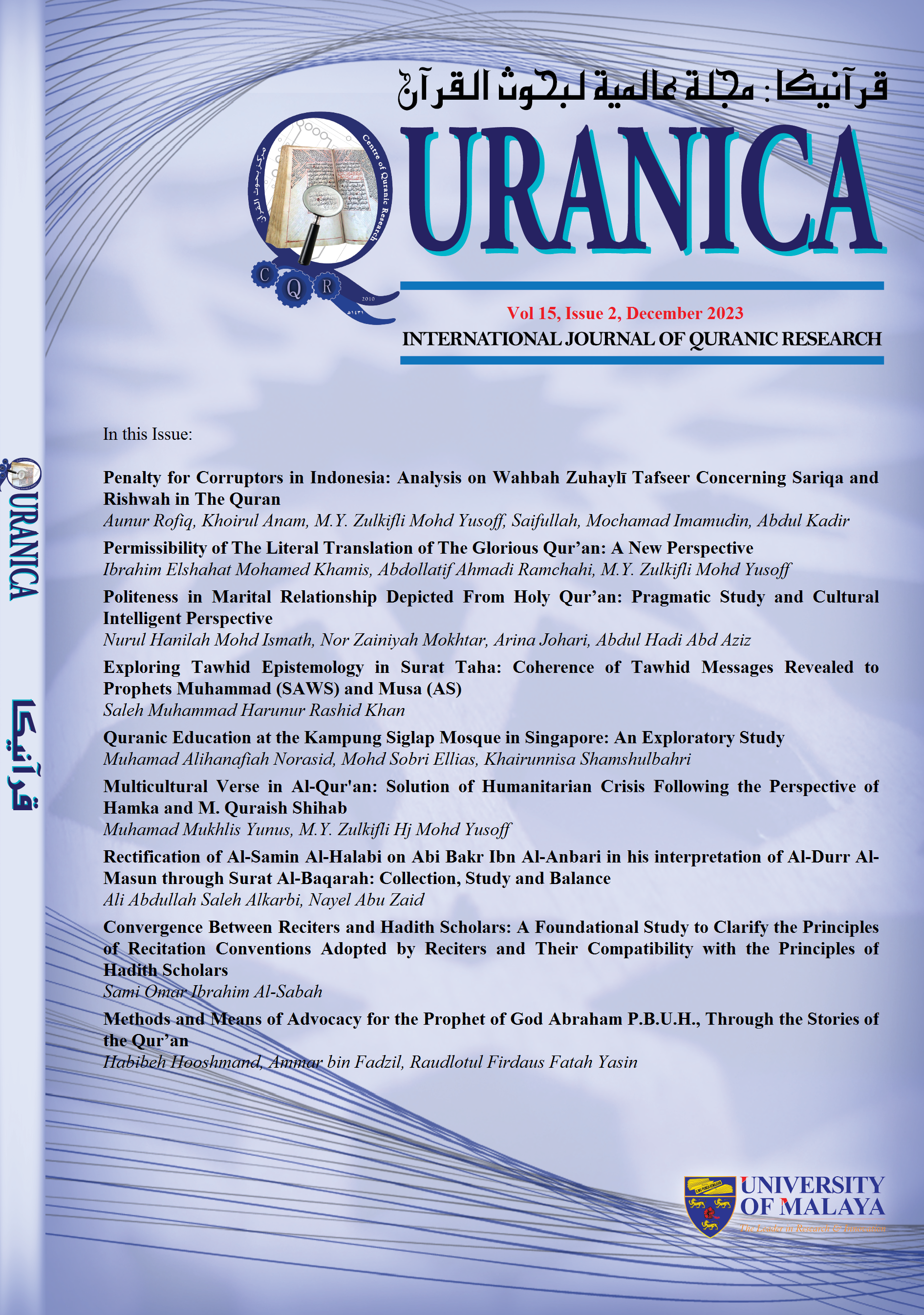A Critical Examination of the Concept of Arabicness in the Holy Quran
Main Article Content
Abstract
The Qur'an stands as the ultimate celestial scripture, revealed in the Arabic language to a prophet residing in the Arabian Peninsula. Subsequent to the advent of Prophet Muhammad, no other prophet has emerged nor will emerge. Consequently, the message of the Quran will endure as long as the Earth exists. The Quran repeatedly employs the term "Arabicity" in its self-description and characterization. Most Islamic exegetes interpret this designation as implying the Arabic language as the medium of the Quran's revelation. In light of the etymological roots of the term "Arabic," this interpretation seems far-fetched. Such an understanding of the Quran's Arabic nature leads to the misinterpretation of several Quranic concepts and has caused some to believe that the Quran's audience is solely Arabic speakers. This essay, by consulting early Islamic lexicographical sources and examining numerous verses, demonstrates that "Arabicness" in the context of the Quran signifies clarity, elucidation, eloquence, impeccability, and freedom from ambiguity and complexity in its message.
Downloads
Article Details
Disclaimer
QURANICA makes every effort to ensure the accuracy of all its contents. However, opinions, discussions, views and recommendations are expressed in this journal do not necessarily reflect the official policy of QURANICA or views of its editors or publishers. Therefore, QURANICA and its publishers will not be liable for any controversy may be arisen. The journal reserves the right, at its sole discretion, to change its terms and conditions of publications.
Copyright
It is a condition of publication that manuscript submitted to the journal have not been published, accepted for publication, nor simultaneously submitted for publication elsewhere. By submitting a manuscript, the author(s) agrees that copyright for the article is transferred to the publisher, if and when the manuscript is accepted for publication.
